
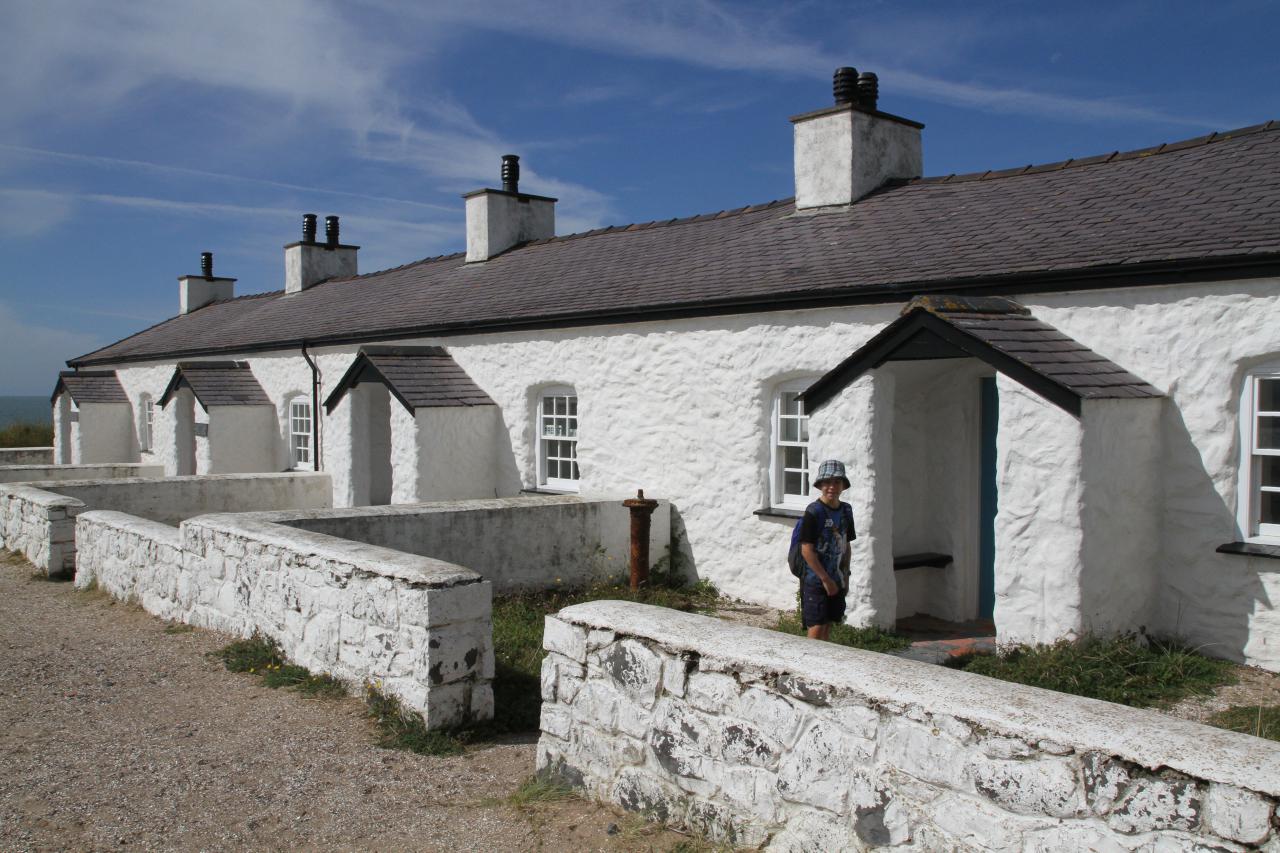

LISTEN TO RYAN INSTEAD OF READING THE ARTICLE
This month I have been unable to get about the Parish through illness, but I was fortunate to have a special day enjoying the delights of Newborough Forest on Anglesey. The coniferous forest is part of a National Nature Reserve, which includes a large area of sandunes, and is situated between the beautiful Llandwyn beach with fantastic views over Snowdonia, the Lleyn Peninsular, and Newborough Village. The walk to Llandwyn Island along the beach or through the forest is a favourite for many people, but access depends on the tides, so please check before you attempt it.
The access road through the forest to the beach is a toll road, but it leads to a huge car park with toilets, and access to a variety of activities in the forest and on the beach. You can cycle, run, walk, search for wildlife, swim or just lie on the beach. We enjoy walking through the forest on one of the many organised trails, to record and photograph the incredible variety of plants, flowers, insects, fungi and birds. It is the home of the red squirrel, but I have to admit that despite tens of visits, we have seen a red squirrel there on only one occasion. There is a lot of evidence of their presence, but sightings are rare. (The best site we have visited for red squirrels is Formby) However there is far more to see in this amazing place, where Corsican pine trees were planted between 1947 and 1965 on the sand dunes to hold back the erosion of the area, and also as a source of timber. It was also the first National Coastal reserve in Wales. The dunes, coastal marshes, sandy and rocky shores, have been shaped over thousands of years, and are the habitat for a dazzling array of plants and animals. The nearby Newborough Warren is one of the largest dune systems in Britain and home to thousands of wild flowers particularly a large variety of orchids.
You can see from the illustrations that it is a magical place, and probably our favourite site for so many reasons. This last week, there were so many wild flowers and orchids in bloom. Almost all grow close to the ground in the sandy terrain, for protection against the strong winds coming off the sea. There were hundreds of pyramidal orchids to see, but walking a wider circuit would bring you thousands of common spotted, northern marsh and bee orchids, and a variety of twayblade orchid species. Bugle, mallow, evening primrose, meadow sweet, willow herb and other flowers are profuse, and attract lots of insects including fritillary, heath and ringlet butterflies. We saw the first signs for several years of Cinnabar caterpillars on ragwort, and we saw flying Cinnabar and six spotted Burnet moths.
A walk along the beach will produce evidence of a variety of sea creatures and shells, and both the forest and beach have outcrops of dark green pillow lava. Llandwyn island itself was formed by an underwater eruption from a volcano, and as the rock cooled, it produced what is known as basaltic pillow lava. The whole area is a wonderful place to visit, and a place we really do recommend.
-
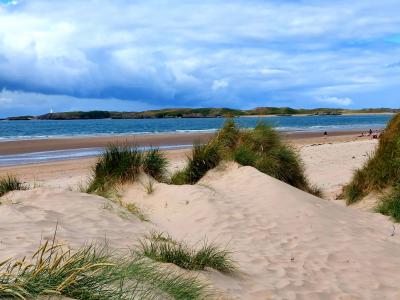
Newborough Beach looking towards Llandwyn Island, Anglesey
-
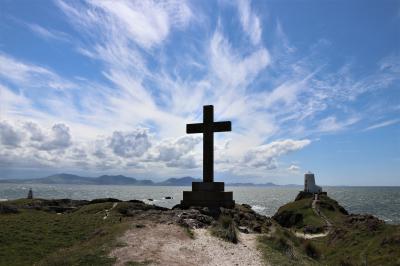
Llandwyn Island, Anglesey
-

Llandwyn Island Lighthouse, Anglesey
-
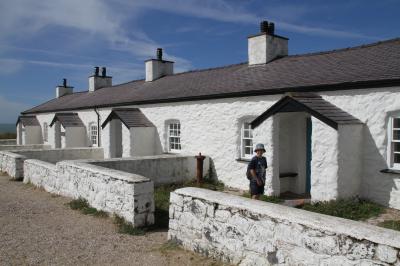
Fishermen's Cottages on LLandwyn, Anglesey
-
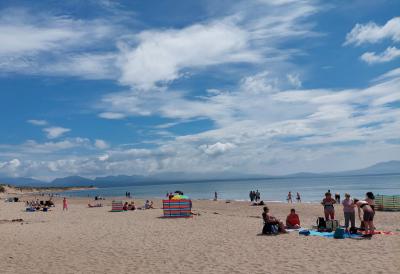
The Beach at Newboroug, Anglesey
-

The Beatch at Newborough
-
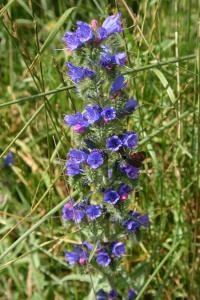
Bugle
-
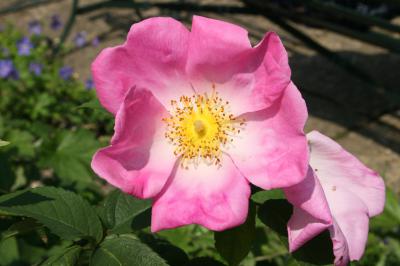
Dof Rose
-

Ragwort with catterpilars
-
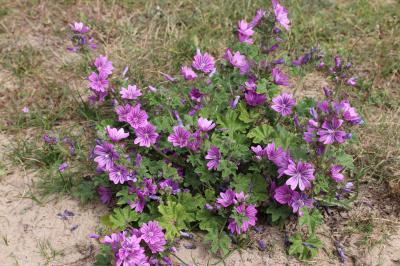
Mallow
-
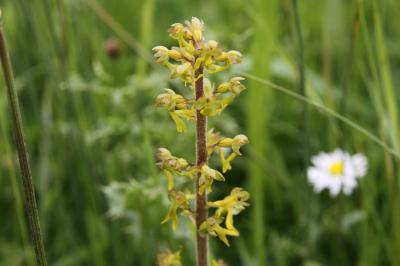
Twayblade
-
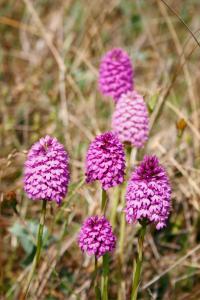
Pyramidal orchids
-
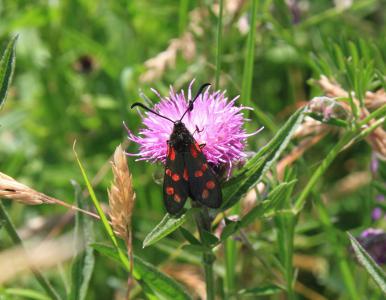
Burddett moth
-
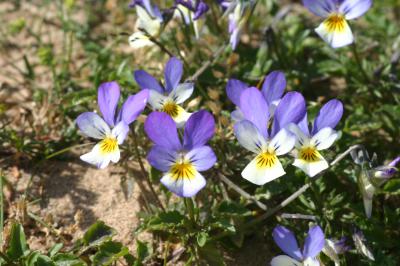
Heartsease
-
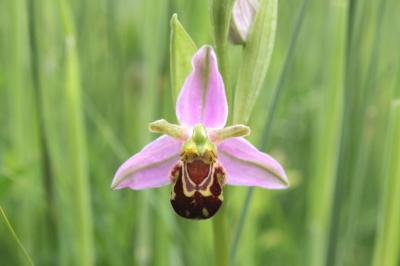
Bee Orchid
-
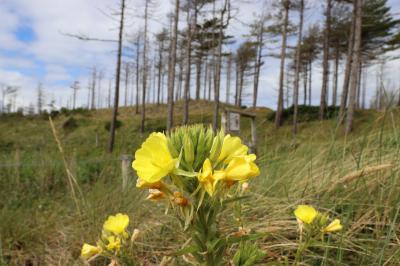
Evening Primrose
-

Bugle
-
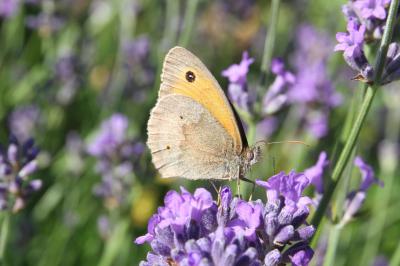
Meadow Brown
-
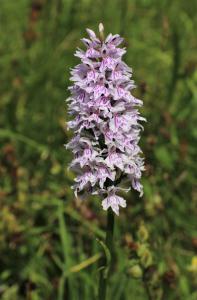
Common spotted orchid
-
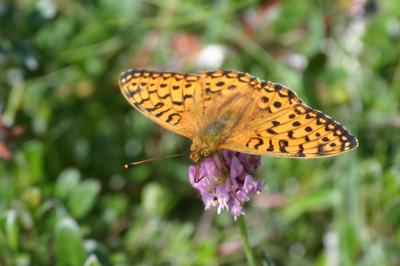
Fritiliary
-
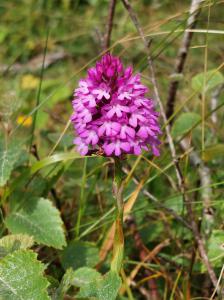
-
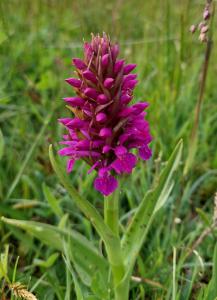
Pyramidal orchid.jpg
-
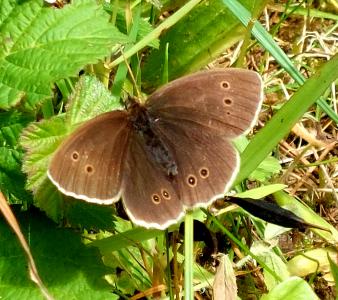
Ringlet Butterfly























